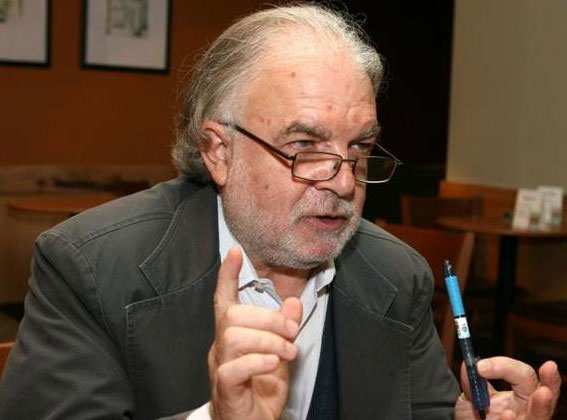By Claude Salhani - Trend:
There is little doubt that the conflict which began in Syria in the spring of 2011 and is now spread into Iraq, slowly creeping into Lebanon like a malignant cancer oozing into Turkey.
The Syrian president has been accused of many ills and frequently reneging on promises he makes. But Bashar Assad is a man of his word in at least one respect.
When the civil war first began in Syria, in 2011, Assad made a promise to the international community and a threat to his neighbors. The threat and the promise were one and the same.
Assad threatened that the violence in Syria would spread to its neighbors who gave support to his opposition.
In that he has kept his word as the violence which began in Syria has since spreads to Iraq, Lebanon and Turkey.
Iraq is partially occupied by the so-called Islamic State, Lebanon has seen violence related to the Syrian civil war and border towns and villages along the Turkish-Syrian border has come under attack from various forces fighting in Syria. And even Jordan is suffering, feeling the weight of more than a million refugees who have created the country's second-largest city in terms of population.
Those who erroneously believed Assad would fall did not know Syria and the system under which Syrians today survive. During the more than 40 years that the Assad clan has ruled Syria, the Alawites minority to which Assad belongs have so infuriated the other groups that there is no going away peacefully. Assad cannot retire quietly to the countryside. He knows that losing power means not only losing his life, but that his entire extended family would be killed as would all his close and even distant collaborators.
Unlike other Arab leaders who fled their country, slipping away in the dead of the night, Assad would very likely be prevented from leaving by those he would leave behind.
Besides the occasional shelling and car bombs going off in border villages, Turkey is feeling the heat from the Syrian conflict in other ways. The country that not too |long ago had high hopes of joining the European Union now stands about as much chance as a snowball in hell to join the Brussels club.
Turkey allowing IS combatants to unleash havoc on the border town of Kobani, has cost Ankara heavy in the public relations domain.
Erdogan is in a manner of speaking holding the Kurds defending the besieged town hostage to his foreign and domestic policies and you can rest assured that the Turkish president is not winning hearts and minds anywhere west of the Dardanelles. Turkey's actions, or rather its inaction where Kobani is concerned is starting to anger other NATO members, of which Turkey is a member.
At the same time Turkey's president has angered the country's own Kurdish minority, numbering roughly 18 percent of the country's close to 90 million population.
By allowing the Islamic State to continue it siege and bombardment of Kobani, although the Turkish army is deployed just a few hundred yards away is upsetting the Kurds of Turkey.
Further angering the Kurds was Erdogan calling the Kurds defending Kobani "terrorists and that the town would fall," just as NATO war planes were bombing IS positions in support of the Kurds defending Kobani.
Adding oil to the fire, Turkey further infuriated the Kurds in the south east of the country when its air force attacked positions of the PKK, the Kurdish Workers Party, considered to be a terrorist organization by Ankara.
Turkey has painted itself in somewhat of a diplomatic corner by allowing IS to transit through its territory and to set up cells in Turkey that could be easily activated. And it is almost a certainty that if Turkey is seen as crossing the line, IS or Syrian agents or both could disrupt the serenity that Turkey has known, despite a few road bumps along way.
That serenity is lost forever as Turkey has moved from being almost in fortress Europe to jumping into the fire and turbulence of the Middle East.
There is indeed much at stake here not only for Turkey but for Europe who gets much of its oil through Turkey via a network of pipelines such as pipelines coming from Qatar, Azerbaijan, and Iraqi Kurdistan. Any of which would make an easy target for any party wishing to cause trouble. And we know there are no shortage of those.
--
Claude Salhani is a specialist on Middle East and terrorism affairs. You can follow Claude on Twitter @claudesalhani.






